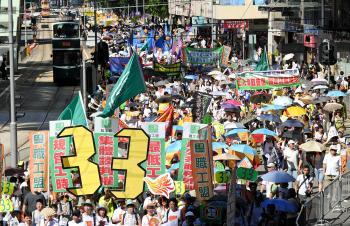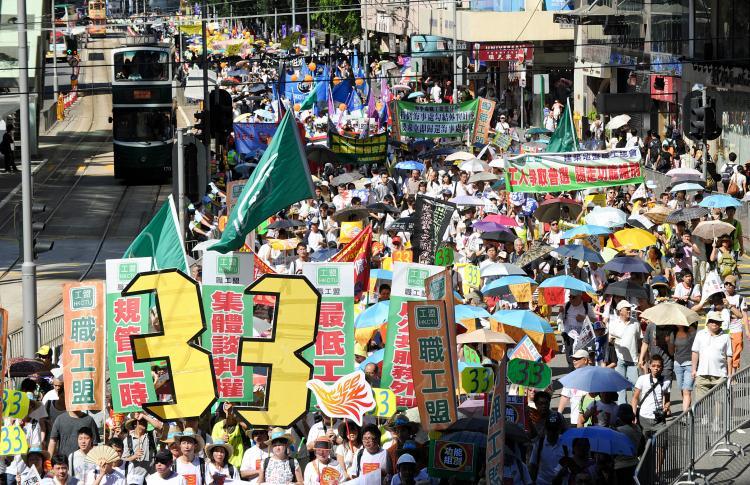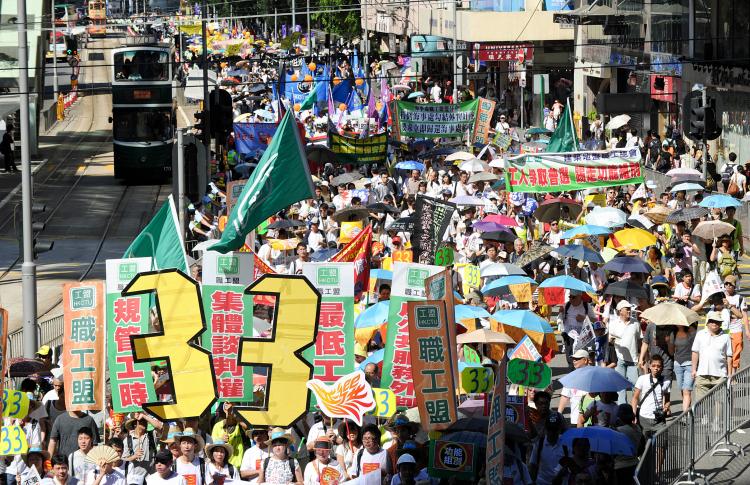Thousands March Against Government Betrayal in HK
The annual July 1 protest march in Hong Kong, marking the 13th anniversary of the return to Chinese rule, attracted 52,000 people.

About 53,000 protesters braved Hong Kong's sweltering streets for a prodemocracy rally on July 1 the 13th anniversary of the former British colony's return to Chinese rule. Mike Clarke/AFP/Getty Images
|Updated:





